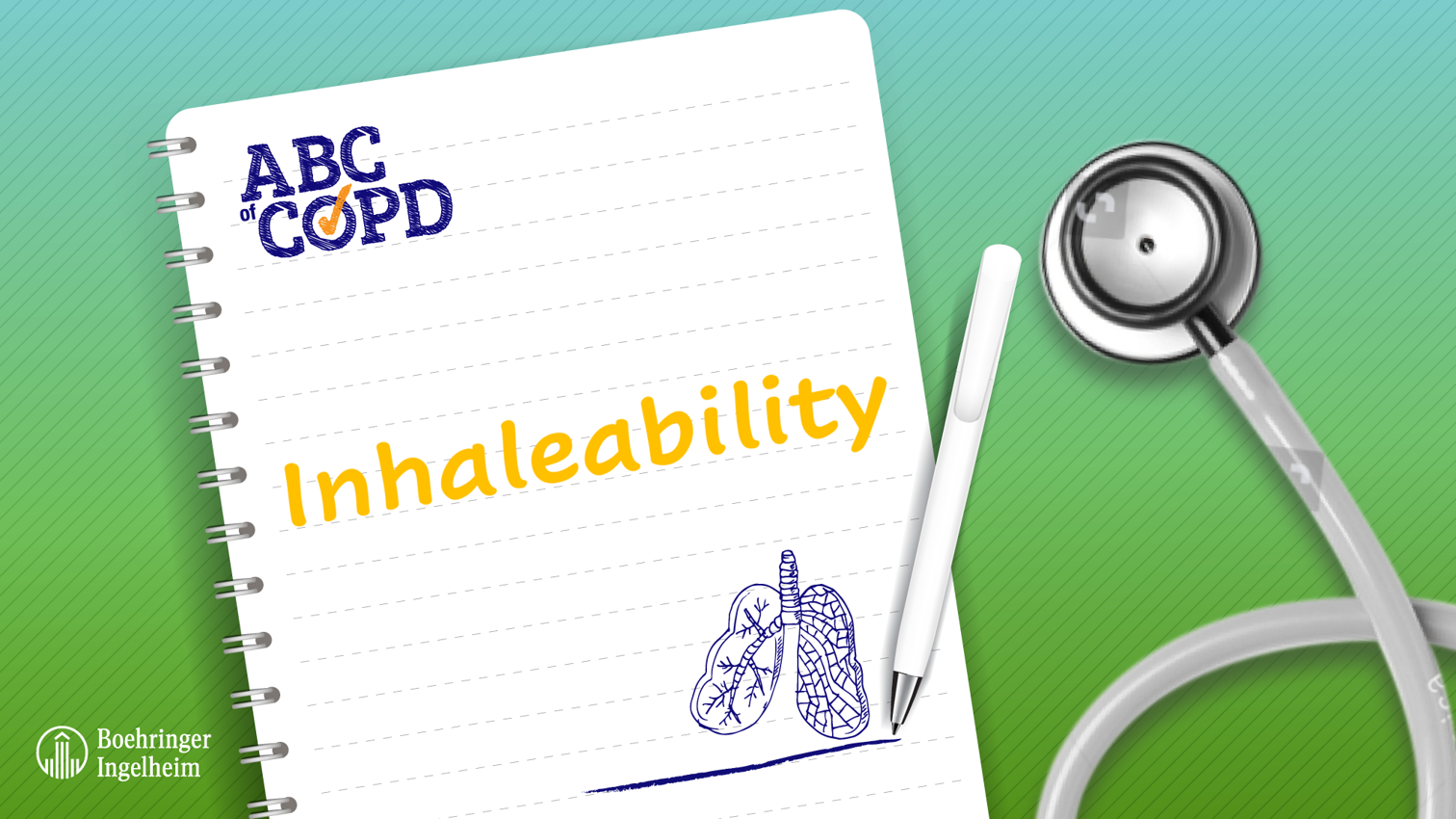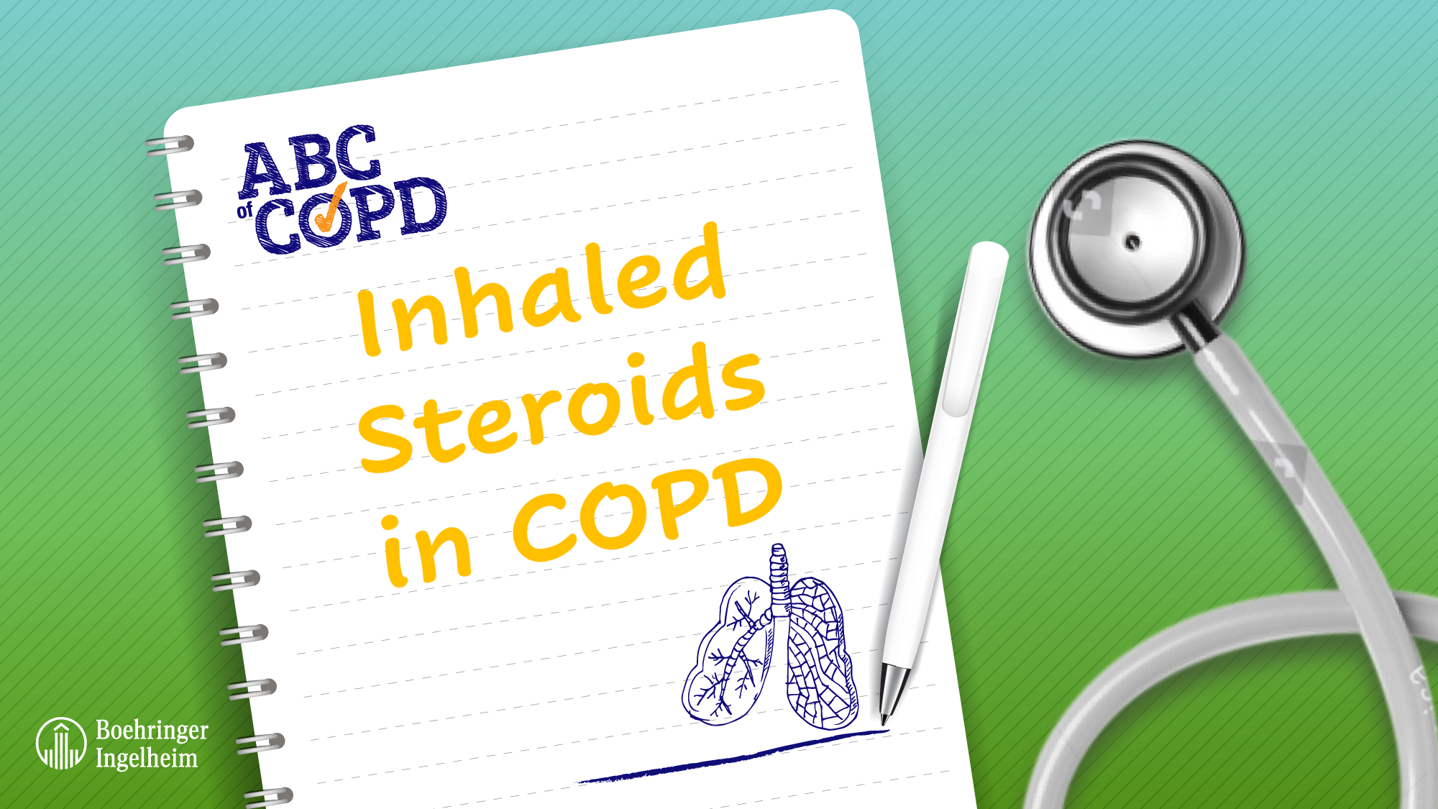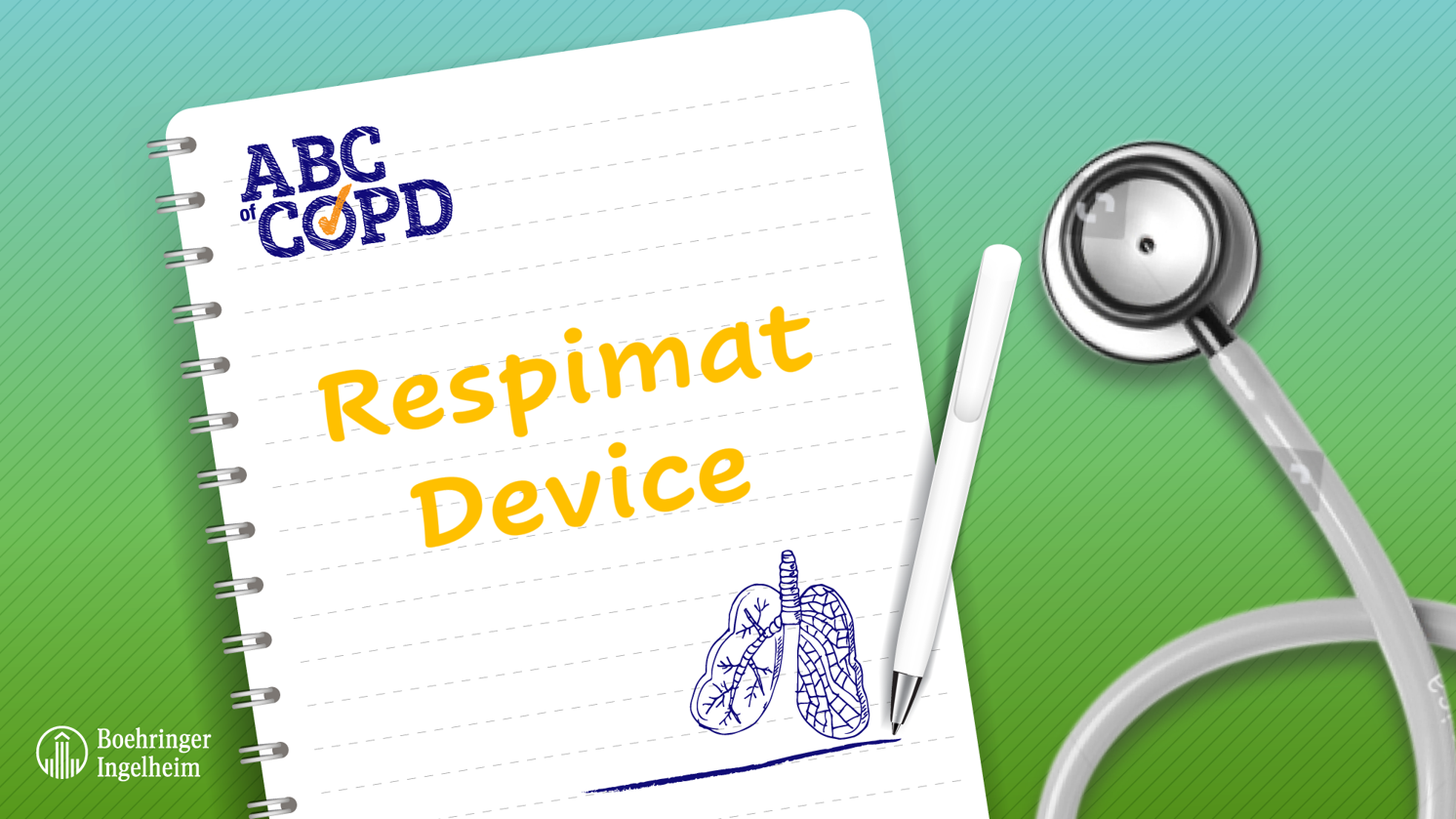
Presenters




Course Details
Importance of Peak Inspiratory flow
Advancements in inhalational technology has accompanied the developments in pharmacotherapy in COPD. In this video from the 26th CHEST-PD Annual Convention, Prof. Klaus Rabe (Kiel, Germany) explained the role of peak inspiratory flow in the delivery of inhaled medications and the selection of appropriate inhaler therapy for COPD. Disclaimer: GOLD has been updated in 2022 with only minor additions; therefore, the principle mentioned in the lecture remain applicable.
About the Speaker
Klaus Rabe is a Professor of Pulmonary Medicine at the University of Kiel and Director of the Department of Pneumology at Clinic Grosshansdorf. He has served on various editorial boards, was the first European Associate Editor of the American Journal of Respiratory and Critical Care Medicine and was the Immediate Past President of the European Respiratory Society and the Chief Editor of the European Respiratory Journal in the past. Aside from being a Member of the German and Dutch Chest Societies, the British Pharmacological Society, and the American Thoracic Society, he has also served on GINA and GOLD.
Estimated time of completion: 20 minutes
What causes low PIFR?
For several reasons, many patients with COPD are unable to generate sufficient peak inspiratory flow rates that are required for many dry-powder inhalers to work. In this video, Prof. Omar Usmani (London, UK) explained the possible causes of low (PIFR) and the role of inhaler selection in addressing the problem of suboptimal PIFR.
About the Speaker
Omar Usmani is a Reader in Respiratory Medicine and Consultant Physician at the National Heart and Lung Institute (NHLI), Imperial College London, and the Royal Brompton Hospital (RBH). He is considered an International Authority on Aerosol Science and Inhalation Medicine whose research has fundamentally contributed to the understanding of therapeutic aerosol deposition and clinical effectiveness in inhaled drug delivery to the lungs, and has been awarded one of the highest accolades in Aerosol Science, the Thomas T Mercer Award from the American Association of Aerosol Research (AAAR) and the International Society of Aerosols in Medicine (ISAM) from recognizing his International Research Excellence in Pharmaceutical Aerosols and Inhalable Materials.
He is the Chairman of the UKIG (UK Inhaler Group) and of the Guidelines Working Party that developed the Inhaler Choice Guideline for UK healthcare professionals in 2017 (which was updated in 2020), and the Head of Assembly 5 (Airway Diseases, Asthma and COPD) and Head of Medicine Phase One (Year 3) of the MBBS programme at Imperial College London and Clinical Lead of CSI Cases (Clinical Science Integrative Cases), a flagship Phase One Module in Imperial's new MBBS Curriculum.
Estimated time of completion: 15 minutes
Soft Mist versus Dry Powder Inhaler
Effective inhaler therapy for COPD depends on several factors, including effective deposition of inhaled pharmacotherapy on target small airways. In this video from the 40th Annual Chest Convention (PCCP), Prof. Omar Usmani (London, UK) explained the importance of proper inhaler technique, the challenges due to suboptimal inspiratory flow, and the appropriate choice of inhaler therapy to address these challenges.
About the Speaker
Omar Usmani is a Reader in Respiratory Medicine and Consultant Physician at the National Heart and Lung Institute (NHLI), Imperial College London, and the Royal Brompton Hospital (RBH). He is considered an International Authority on Aerosol Science and Inhalation Medicine whose research has fundamentally contributed to the understanding of therapeutic aerosol deposition and clinical effectiveness in inhaled drug delivery to the lungs, and has been awarded one of the highest accolades in Aerosol Science, the Thomas T Mercer Award from the American Association of Aerosol Research (AAAR) and the International Society of Aerosols in Medicine (ISAM) from recognizing his International Research Excellence in Pharmaceutical Aerosols and Inhalable Materials.
He is the Chairman of the UKIG (UK Inhaler Group) and of the Guidelines Working Party that developed the Inhaler Choice Guideline for UK healthcare professionals in 2017 (which was updated in 2020), and the Head of Assembly 5 (Airway Diseases, Asthma and COPD) and Head of Medicine Phase One (Year 3) of the MBBS programme at Imperial College London and Clinical Lead of CSI Cases (Clinical Science Integrative Cases), a flagship Phase One Module in Imperial's new MBBS Curriculum.
Estimated time of completion: 20 minutes
Benefits of Soft Mist Inhaler
Suboptimal inspiratory flow may affect the pharmacokinetics, delivery and efficacy of inhaled medications for COPD. In this video from the 40th Annual Chest Convention (PCCP), Prof. Omar Usmani (London, UK) discussed the correlation of inspiratory flow on clinical outcomes of COPD, and the benefits of soft-mist inhalers in overcoming suboptimal inspiratory flow and optimizing deposition of medications in the diseased small airways in COPD.
About the Speaker
Omar Usmani is a Reader in Respiratory Medicine and Consultant Physician at the National Heart and Lung Institute (NHLI), Imperial College London, and the Royal Brompton Hospital (RBH). He is considered an International Authority on Aerosol Science and Inhalation Medicine whose research has fundamentally contributed to the understanding of therapeutic aerosol deposition and clinical effectiveness in inhaled drug delivery to the lungs, and has been awarded one of the highest accolades in Aerosol Science, the Thomas T Mercer Award from the American Association of Aerosol Research (AAAR) and the International Society of Aerosols in Medicine (ISAM) from recognizing his International Research Excellence in Pharmaceutical Aerosols and Inhalable Materials.
He is the Chairman of the UKIG (UK Inhaler Group) and of the Guidelines Working Party that developed the Inhaler Choice Guideline for UK healthcare professionals in 2017 (which was updated in 2020), and the Head of Assembly 5 (Airway Diseases, Asthma and COPD) and Head of Medicine Phase One (Year 3) of the MBBS programme at Imperial College London and Clinical Lead of CSI Cases (Clinical Science Integrative Cases), a flagship Phase One Module in Imperial's new MBBS Curriculum.
Estimated time of completion: 20 minutes
Importance of Inhaler Selection
Inhaled therapy for COPD comes in a wide variety of inhaler types. In this video, Prof. Michael Dreher (Aachen, Germany), discussed the advantages and limitations of the various inhaler types and the impact of appropriate inhaler selection on the clinical outcomes of COPD patients with contributions from Prof. Patrick Moral (Manila, Philippines).
About the Speaker
Michael Dreher is a professor of Medicine and Pneumology and head of department of Pneumology and Intensive Care Medicine in the University Hospital Aachen. He is a member of the Management Board of the German Society for Pneumologie and Respiratory Medicine, West German Pneumologie Society, and Respiratory League, as well as a member of the board of Trustees of the German Lung Foundation. He serves as an ad hoc reviewer of a number of scientific journals, including the American Journal of Respiratory and Critical Care Medicine, European Respiratory Journal, Thorax, Chest, Respirology, Respiratory Care, Respiratory Medicine, Journal of Internal Medicine, Journal of Critical Care. He is also associate editor of BMC Pulmonary Medicine and has authored numerous publications.
Patrick Gerald is an Associate Professor in the Department of Medicine of the University of Santo Tomas, Faculty of Medicine and Surgery. He has served as a past president of the Philippine College of Chest Physicians and Philippine Society of Sleep Medicine. He is a Fellow of the Philippine College of Physicians and currently serves as member of the Committee on Education of the Asia Pacific Society of Respirology.
Estimated time of completion: 25 minutes
How to choose an appropriate inhaler for COPD patients
Due to their disease, many COPD patients have suboptimal inspiratory flow rates, which may hinder the optimal efficacy of inhaled therapy. In this video, Prof. Arschang Valipour (Vienna, Austria) presented the results of the TRONARTO study, which highlights the impact of tiotropium-olodaterol soft-mist inhaler on the lung function of COPD patients and, together with Prof. James Chalmers (London UK), shared principles when choosing an inhaler with some input from Dr. Sarah Jarvis.
About the Speaker
Arschang Valipour is head of the Department of Respiratory and Critical Care Medicine at Krankenhaus Nord-Klinik Floridsdorf in Vienna and Fellow of the American College of Chest Physicians (FCCP) and the College of Experts of the European Respiratory Society. He is the director of the Karl-Landsteiner-Institute for Lung Research and Pulmonary Oncology and Health Care Manager at the University of Economics Vienna. He is also Associate Editor of “Respiration,” “International Journal of COPD,” and “PUL’MONOLOGIYA” (Russian Respiratory Society), as well as Editorial Board Member of “Journal of Clinical Medicine” (JCM) and “Ukrainian Medical Journal.” Finally, he is a member of the Interasma European Scientific Network (INESnet), a Certified Clinical Researcher (GCP Certificate of the Austrian Medical Chamber), and a reviewer of the Ethics Committee of the Vienna City Council.
James Chalmers is the British Lung Foundation Chair of Respiratory Research at the University of Dundee and honorary consultant physician at Ninewells Hospital. Not only is he the current acting chair of the European Bronchiectasis Registry and Deputy Chief Editor of the European Respiratory Journal, but he is also the current holder of the GSK/British Lung Foundation Chair in Respiratory Research and a prestigious Scottish Senior Fellowship from the Chief Scientists Office. As a GSK/British Lung Foundation Professor of Respiratory Research in the University of Dundee, UK, he has chaired a number of international guidelines including the current European Respiratory Society COVID-19 task force.
Sarah Jarvis is a General Practitioner (GP), GP trainer and Fellow of the Royal College of General Practitioners (RCGP). She trained at Cambridge and Oxford universities and became a partner in an inner-city general practice in 1990. She is an active medical writer and broadcaster and is the resident doctor for BBC Radio 2 as well as appearing regularly on Channel 5, Good Morning Britain, LBC and other national and regional news channels. In addition, she is the doctor for Good Housekeeping and My Weekly magazines. She is also the Clinical Director of Patient Platform Limited, which includes the Patient Access app (used by 8 million UK patients to access their GP and get health information) and Patient.info, a medical information site with over 100 million visits a year. Finally, she has had a lifelong interest in women’s health – her books include A Younger Woman’s Diagnose-it-yourself Guide, Women’s Health for Life and Pregnancy for Dummies. She founded the Women’s Taskforce at the RCGP and was the RCGP Women’s Health spokesperson for over 15 years.
Estimated time of completion: 15 minutes
ABCs of COPD - Inhaleability Course Outline
1. TITLE: Importance of Peak Inspiratory flow
- Topic: Peak inspiratory flow, inhaler characteristics and soft-mist, peripheral deposition; reusability
- Speaker: Klaus Rabe
- Actual duration of video: 12~ minutes
- Estimated time of completion: 20 minutes
PC-PH-103611 / March 2023
3. TITLE: Soft Mist versus Dry Powder Inhaler
- Topic: Inhaler technique, challenges with DPI vs mist, suboptimal inspiratory flow
- Speaker: Omar Usmani
- Actual duration of video: 10~ minutes
- Estimated time of completion: 20 Minutes
PC-PH-103611 / March 2023
5. TITLE: Importance of Inhaler Selection
- Topic: Inhaler use errors, difference across inhalers
- Speaker: Michael Dreher & Patrick Moral
- Actual duration of video: 16~ minutes
- Estimated time of completion: 25 Minutes
PC-PH-103611 / March 2023
2. TITLE: What causes low PIFR?
- Topic: Factors associated with low PIFR
- Speaker: Omar Usmani
- Actual duration of video: 8~ minutes
- Estimated time of completion: 15 Minutes
PC-PH-103611 / March 2023
4. TITLE: Benefits of Soft Mist Inhaler
- Topic: Benefits of Soft Mist Inhaler
- Speaker: Omar Usmani
- Actual duration of video: 11~ minutes
- Estimated time of completion: 20 minutes
PC-PH-103611 / March 2023
6. TITLE: How to choose an appropriate inhaler for COPD patients
- Topic: Challenges with DPIs, benefits of SMI, choosing an appropriate inhaler
- Speaker: Arschang Valipour, James Chalmers, Sarah Jarvis
- Actual duration of video: 10~ minutes
- Estimated time of completion: 15 minutes
PC-PH-103659 / April 2023
Estimated time of completion: 1 hr 55 min
CPD Points pending renewal with PRC




